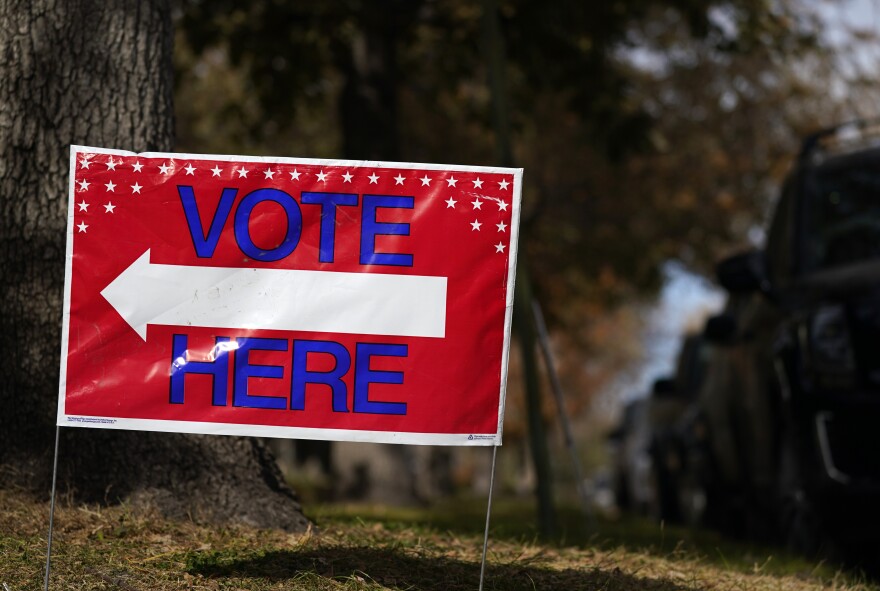- Ballots in Allentown will include two referendums on potential raises for City Council members and the city controller
- The first question, if approved, would raise the controller’s salary from $49,900 to $76,000, with future raises tied to the mayor’s pay
- If voters approve the second question, council members' pay will more than double
ALLENTOWN, Pa. — Allentown voters were denied the opportunity to weigh in on several referendums, but two still will be on 2023 general election ballots in the city.
Voters will be asked whether to authorize substantial raises for the controller and Allentown City Council’s seven members.
Council rejected ballot questions that could have set term limits on those two offices.
Referendum 1
Shall Section 402 of the City of Allentown Home Rule Charter be amended to set the salary of the Controller equal to 80% of the Mayor's salary?Referendum 1 on Allentown ballots
Council in July approved a measure asking voters whether to tie the controller’s salary to the mayor’s pay rate.
City controllers — a position now held by Jeff Glazier — make just under $50,000 a year. That salary was set when voters approved Allentown’s home-rule charter in 1996.
The ballot question proposes setting the controller’s salary at 80% of the mayor’s.
If more than half of Allentown voters vote “yes” on the first referendum, the controller’s salary would jump 52%. Glazier would be set to be paid about $76,000 in 2024, based on Mayor Matt Tuerk’s $95,000 salary.
Tying the controller’s pay rate to the mayor’s also would take away voters’ authority to change the controller’s salary in the future.
Allentown’s home-rule charter says “all future increases or decreases in the City Controller’s salary shall be by referendum.”
Referendum 2
Shall Section 204 of the City of Allentown Home Rule Charter be amended to set the salary of the Council at $15,000 and the President of Council shall receive One Thousand Dollars in addition to the salary of a regular City Council member?Referendum 2 on Allentown ballots
A second referendum on Allentown voters’ ballots will ask whether to more than double city council members’ pay for serving.
Members now make $6,400 per year, the same as they made a quarter-century ago. The ballot question proposes raising members’ salaries to $15,000 — a 134% increase.
Council President, currently Daryl Hendricks, would be paid $16,000 annually.
Hendricks and Councilwoman Candida Affa called their current salaries “embarrassing” before voting to authorize the ballot question in July.
Affa also said she felt her salary was “almost like a slap in the face.” Hendricks said it was “ridiculous” that council members and controllers have not seen a raise since 1997.
Councilwomen Ce-Ce Gerlach and Natalie Santos voted against authorizing the ballot question. Gerlach said she was “uncomfortable” asking for more money after serving eight years for free on Allentown School Board.
Only voters can increase Allentown City Council members’ pay under the city’s code.
Voters have only once been asked to authorize raises; more than 80% voted against them in 2002.
Questions that didn’t make the ballot
At the same meeting at which the council approved asking voters for large raises, it rejected a measure that would’ve let voters decide whether to impose term limits on them.
Members would’ve been barred from serving more than three four-year terms.
Daryl Hendricks, Candida Affa, Santo Napoli and Cynthia Mota voted to defeat the referendum, while Ce-Ce Gerlach, Ed Zucal and Natalie Santos voted to send it to the ballot.
Hendricks and Mota are in the middle of their third terms on council, while Affa is almost certain to win a third term in November.
Council also shot down a potential ballot question that would’ve limited any city controller to serving no more than two terms.
Voters could’ve seen a ballot question about launching an alternative first-response program in the city.
The proposal — for a one-year pilot program that would’ve sent "mobile community response teams” to some 911 calls — was voted down 4-2 by Allentown City Council in June.
That rejection was not the end of the measure, as more than 3,800 residents signed petitions showing their support.
Initiatives with at least 2,000 signatures become ballot questions if council members do not approve them within 60 days, according to the city’s code.
But the Lehigh County Board of Elections unanimously rejected the voter-led referendum in late August. County Executive Phil Armstrong said the referendum had more than a dozen legal issues.


